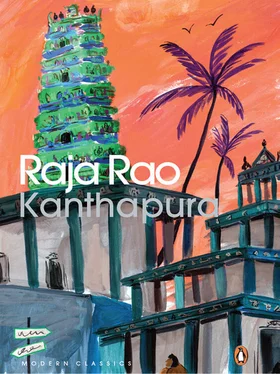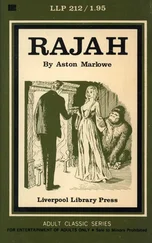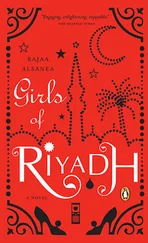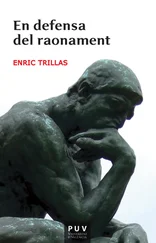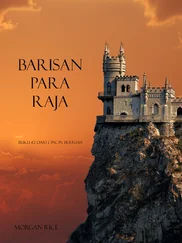And the flame of Jatin,
And the fire of Bhagat,
And the love of the Mahatma in all,
O, lift the flag high,
Lift the flag high,
This is the flag of the revolution.
And the Skeffington coolies cry out, ‘Mahatma Gandhi ki jai’; and the coolies of the harvest take it up and shout, ‘Mahatma Gandhi ki jai!’ and we are near them and they are near us, and they say something to us and we do not understand what they mutter, and we say, ‘Mahatma, Mahatma, Gandhi Mahatma!’ and they put their mouths to our ears and say, ‘Gandhi Mahatma ki jai!’ and, ‘Punjab, Punjab!’ But our ears are turned to the firing and we strain our eyes to see the coolies on the mound, the coolies of the Skeffington Coffee Estate, but all we hear are shouts and shrieks and yells. Then suddenly from the Himavathy bend there is such a rush of more coolies that the soldiers do not know which way to turn, for the city boys are still marching up, and women are behind them, and the crowd behind the women, and there are the coolies across the barricades; and there is such joy that a wild cry of ‘Vandè!. Mataram!. ’ gushes from the valley to the mountaintops and all the moonlit sky above us. And the white man shouts a command and all the soldiers open fire and all the soldiers charge — they come rushing towards us, their turbans trembling and their bayonets shining under the bright moon, and our men lie flat on the fields, the city boys and the women, and the soldiers dash upon us and trample over us, and bang their rifle butts against our heads. There are cries and shrieks and moans and groans, and men fly to the left and to the right, and they howl and they yell and they fall and they rise and we rise, too, to fly, but the soldiers have seen us, and one of them rushes towards us, and we are felled and twisted, we are felled and we are kicked, we are felled and the bayonets waved over our faces — and a long time passes before we wake and we find Satamma fainted beside us, and Madamma and I, who were soaking in a ditch, crawl past her. And then there is a shot, and a fleeing man nearby is shot in the chest and he falls over us, and the moon splashes on his moustached face, his peasant blanket soaked in blood, and he slowly lets down his head, crying ‘Amma, Mother! Amm — Amm!’ and we wipe the saliva from his mouth, and we put our mouths to his ear and say, ‘Narayan, Narayan,’ but he is already dead. There is no more charging now, but a continuous firing comes down from the Bebbur mound. The moon still shines and with it the winking light of the Skeffington Coffee Estate.
There is a long silence.
We’re in the big field. Where is Ratna? Where is Venkateshia’s wife, Lakshamma? And Nose-scratching Nanjamma? And Seethamma and Vedamma and Chinnamma and all? ‘How are you, Madamma?’ I ask. ‘Hush!’ says someone in front of us, hid beneath the harvest, and as we raise our heads, we see men hid behind this ridge and that in this field and that, and their white clothes and their tufts and braids. And there is Kanthapura, too, across the canal and the aloe lane, and there’s not a light, and the streets are milk-splashed under the moon. There’s Rangamma’s veranda and Nanjamma’s mango well, and Sami’s courtyard with its cart, yokes on the earth and backs in the air; the dustbin is by the main street square, and the Corner-house coconut tree is dark and high. There seems to be not a beating pulse in all Kanthapura.
Now, there’s the gruff voice of the white officer and the whispered counsels of the soldiers. Soon they’ll begin the attack again.
The attack began not from their side but ours, for someone broke open the gas cylinders of the city lights, and they made such a roar that the officer thought it was a gunshot, and immediately there was a charge, and the soldiers came grunting and grovelling at us, bayonets thrust forward, and shot after shot burst through the night, and we knew this time there would be no mercy, and we rose and we ran; and someone from the Bebbur mound had run up to the barricades where there was neither soldier nor officer, and had tried to hoist the National flag, and the coolies rushed behind him, and the coolies from the Himavathy bend rushed towards them, and there was a long ‘Vandè Mataram!’ and the soldiers, fiercer, dashed behind us, and man after man gasped and cried and fell, and those that were tying bandages to them, they, too, got bayonet thrusts in the thighs and arms and chest, and we spread over field and bund and garden, and when we came to the canal there were so many of us to wade through, that the boys said, ‘Go ahead, go ahead, sisters,’ and they stood there, holding hand to hand and arm to arm, one long aloe hedge of city boys, their faces turned to the Bebbur mound. And the soldiers rush at them, but one goes forward and says, ‘Brother, we are non-violent, do not fire on innocent men,’ and the white officer says, ‘Stop,’ and he says to the soldier, ‘What does he say?’ and the soldiers laugh, ‘They say they’re innocent,’ and the officer says, ‘Then ask them if they will be loyal to the Government,’ and the boys ask, ‘What Government?’ and the officer answers, ‘The British Government,’ and the boys say, ‘We know only one government and that is the government of the Mahatma,’ and the officer says, ‘But ours is an Indian Government,’ and he says to a soldier, ‘Plant this flag here,’ and we who are on the other side of the canal, we lie behind the bund, and we look at the flag being planted just between Satamma’s boundary stone and the bel tree, and the moon is still there and the fields fretful with a mountain wind. And the officer says, ‘Salute, and march past the flag, and you will be free,’ and then he says, ‘Come out,’ and the boys cry in answer, ‘Inquilab Zindabad! Inquilab Zindabad!’ and the boys at the back begin:
O fire, O soul,
Give us the spark of God-eternal,
That friend to friend and friend to foe,
One shall we stand before Him.
And the flame of Jatin,
And the fire of Bhagat,
And the love of the Mahatma in all,
O, lift the flag high,
Lift the flag high,
This is the flag of the revolution.
And suddenly a boy rushes to the flag and a host of bayonets are thrust at him, and another boy rushes up behind him, and at him the officer aims his pistol, and then others cry and shout and rush at the flag, and the parrots and the bats and the crows come screeching out of the bel tree; and the coolies are now running down the Bebbur mound, and there is a hand-to-hand fight, and some, frightened, fall into the canal, and others go rushing this side and that, but the city boys, they squat down, they plop on the harvests and they squat down. But someone has hit the officer and he falls, and then curses and bayonets fly, and the coolies of the Bebbur mound have arrived, and they are holding the gaslight boxes in front of them, and some carry gas cylinders on their heads, and they carry sickles and lathis in their hands. But a voice is heard saying, ‘No violence, in the name of the Mahatma,’ and we know it is Ratna’s voice — but, where is she? Where? And the coolies answer back, ‘Mahatma Gandhi ki jai! Say, brother, Gandhi Mahatma ki jai!’ and the soldiers rush towards them and fall on them, and the coolies fall on the soldiers, and the city boys cry, ‘Stop, stop,’ but bayonets are thrust at them too, and there is such a confusion that men grip men and men crush men and men bite men and men tear men, and moan on moan rises and groan on groan dies out, while the ambulance men are still at work and men are bandaged, and shot after shot rings out and man after man falls like an empty sack, and the women take up the lamentation: ‘He’s gone — he’s gone — he’s gone, sister!’ they beat their mouths and shout, ‘He’s gone— he’s gone — he’s gone, Moorthappa!’ and somebody adds, ‘He’s gone — he’s gone — he’s gone, Rachanna!’ and over the moans and the groans rises the singsong lamentation, ‘Oh Ammayya, he’s gone — he’s gone — he’s gone, Rachanna!’
Читать дальше
